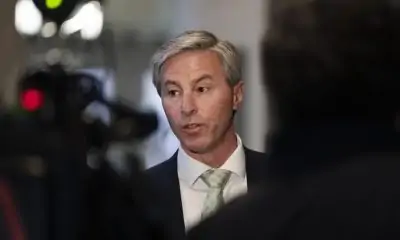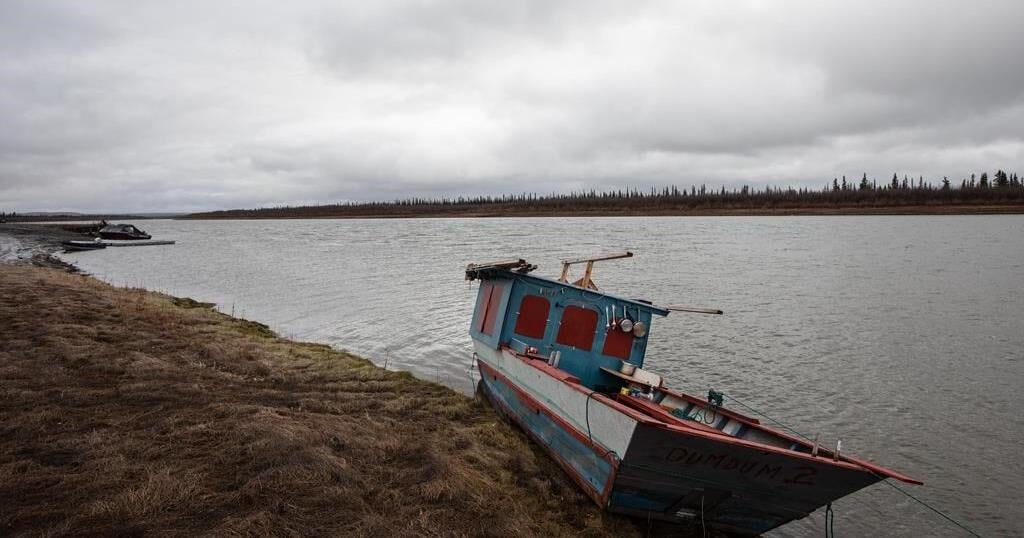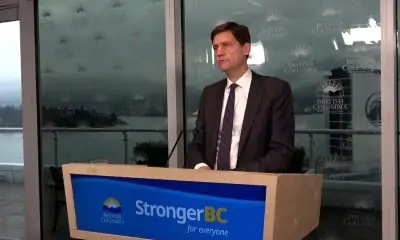On the eve of the Throne Speech and in the wake of Teck’s decision to pull out of its Frontier Mine project, Premier Jason Kenney announced legislation targeting protesters who disrupt vital infrastructure networks.
Kenney blamed Teck’s withdrawal on Sunday in part on the “appearance of anarchy” caused by nationwide protests in support of Wet’suwet’en heridetary chiefs who are opposed to the CoastalGas Link project in northern B.C.
“This decision was taken in large part because of regulatory uncertainty and endless delays created by the national government, as well as the general atmosphere of lawlessness that we have seen take hold of parts of our country and much of our economic infrastructure in the past three weeks,” said Kenney in a speech to caucus, government staff, invitees and media on Monday.
The first bill of the spring session will be the Critical Infrastructure Defense Act, creating new “stiff penalties for anyone who riots on or seeks to impair critical economic infrastructure,” Kenney said.
The government will table the legislation, otherwise known as Bill 1, on Tuesday.
Kenney said he had spoken to “major” investors who have cancelled, frozen and suspended major investments in the economy because of the rail blockades.
The Court of Queen’s Bench granted a province-wide, 30-day injunction last week after protesters blocked CN tracks east of Edmonton. Police can be called to serve and enforce that order. In Ontario, police enforced an injunction Monday, dismantling the blockade near Belleville, Ont., that began on Feb. 6 and halted freight and passenger rail service across much of the country.
Kenney targeted “urban green left zealots,” saying they were trying to appropriate protests and condemning Indigenous people to poverty. The Coastal GasLink project, which is supported by all 20 elected First Nation chiefs along the pipeline’s route, is expected to create 2,000 to 2,500 jobs during its four-year construction period.
Kenney also promised a “citizen-initiative” referendum law in the coming days that will allow citizens to put issues that are important to them on the ballot, although he added that the government would prevent frivolous abuse of the process.
Although Teck CEO Don Lindsay criticized the lack of a regulatory framework and cited investor uncertainty in his letter to the federal government Sunday, Kenney said the province can reconcile a potential referendum over national unity issues.
“When I talk about tensions on national unity, I’m not advocating that, I’m describing a reality that exists in this province and other parts of Canada. And I think it would be grossly irresponsible for political leaders to ignore that reality,” he said.
The Bill 1 announcement came on the heels of the Alberta Court of Appeal’s decision Monday afternoon, which ruled in favour of Alberta’s legal challenge and declared the federal carbon tax unconstitutional.
When asked how killing the carbon tax would make investing in Canada more attractive to companies like Teck, Kenney said the province’s Technology Innovation and Emissions Reduction (TIER) Regulation is a better solution than the federal carbon tax because it focuses on big emitters and scientific solutions.
He also reiterated that Teck did not flag environmental frameworks as a problem until its decision was made public on Sunday.
‘Let’s resolve those issues’: Mikisew Chief
Chief Archie Waquan of the Mikisew First Nation, who had announced the community’s support for the Teck project on Friday, said he was disappointed in the company’s decision on Monday.
“I feel badly about it,” he said, noting that it took 10 years of work to come to an agreement.
Hurting the economy is not the best way to protest, but clamping down on protestors might be “too strong” of an approach, he said, adding that talking with Indigenous communities is the only way to practical solutions.
“Let’s resolve those issues that are affecting First Nations — let’s get it going — and then you’ll never have any of those blockades in the future,” he said.
NDP Leader, Rachel Notley, answers question about Teck’s application withdraw from the Frontier oilsands mine during a news conference on costs being downloaded onto municipalities by the government, with NDP Municipal Affairs Critic, Joe Ceci (back) in Edmonton, February 24, 2020. Ed Kaiser/Postmedia
‘He’s scrambling’: Notley
Opposition NDP leader Rachel Notley said Monday that Teck’s decision is the direct result of Premier Jason Kenney’s “combative” political approach.
International investors are looking for a predictable regulatory framework on greenhouse gas emissions, but instead are seeing Kenney demonize anyone with any concerns about climate change, alienating investors and leaving Albertans behind, Notley said.
The blockades are the result of longstanding matters that need to be addressed across the country, and confounding the issue of protests, emissions regulation and investment is dishonest, she said.
“He’s scrambling, and it’s cheap issues management,” said Notley.
Kenney has fought against the environmental frameworks that investors want and mischaracterized international banking heads and fund managers as “urban green radicals,” she said.
“He is essentially promoting the continued investor uncertainty that created this problem in the first place,” she said.
It is already illegal to blockade railways, and police have the jurisdiction to arrest trespassers, she said when asked about how effective Kenney’s upcoming first bill will be.
“It comes down to what the deterrent element is, and how it’s constructed,” she said.





























